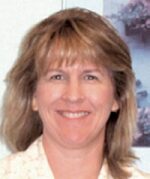At the 2014 SPE Hydraulic Fracturing Technology Conference in February, former Texas A&M Department of Petroleum Engineering head Stephen A. Holditch received a well-deserved lifetime achievement recognition, the Legends of Hydraulic Fracturing Award. Among the reasons he received this award was that he has demonstrated throughout his career a passion for understanding and explaining to his peers and colleagues what happens during hydraulic fracturing. Through his consulting company and as a professor and department head, he passed his passion along to others. He served on many masters and doctoral candidate committees and directed numerous graduate-student research projects. He continued to spread knowledge by authoring more than 100 SPE papers.
With the rising importance of hydraulic fracturing in the development of unconventional plays and deepwater projects, who among you will be a future legend of hydraulic fracturing? Who among you possesses the passion, the drive to really understand fracturing in these horizons and to advance the science and understanding for yourself, your company, the industry, and the world? Who will take the time to document their work?
As I survey the industry, its leadership styles and career paths, I see familiar themes. Recent graduates come into completions, do their mandatory stint, and then move to the next rotation in order to qualify ultimately for a promotion into management. I am not disparaging this, and I believe in the importance of a well-rounded career as well as an understanding of the well/project life cycle.
But, in closing, I will state that I also believe an engineer should develop an expertise in at least one aspect of their work. So, ask yourself two questions: What is my expertise? What do I want to be remembered for? And then, look inward and contemplate, “What will be my legacy?”
This Month's Technical Papers
Production Analysis Couples Multivariate Statistical Modeling and Pattern Recognition
Improved Conductivity and Proppant Applications in the Bakken Formation
Defining Regions of Hydraulic-Fracture Connectivity Aids in Designing Completions
Analysis of US Fracturing-Fluids Trends Offers Insight Into Changes Over Time
Recommended Additional Reading
SPE 166332 Characterizing Hydraulic Fracturing With a Tendency-for-Shear-Stimulation Test by Mark McClure, The University of Texas at Austin, et al.
SPE 163824 Development and Use of High-TDS Recycled Produced Water for Crosslinked-Gel-Based Hydraulic Fracturing by R. LeBas, Halliburton, et al.
SPE 166298 Influence of Hydraulic Fractures on Wellbore/Sandface Temperatures During Production by J.F. App, Chevron Energy Technology Company
SPE 166550 Offshore Horizontal-Well Fracturing: Operational Optimization in the Southern North Sea by Marc Langford, Centrica, et al.

Karen Olson, SPE, is the completion engineering chief for Southwestern Energy. She holds a BS degree in petroleum engineering from Louisiana State University and an MS degree in petroleum engineering from Texas A&M University. Olson joined Southwestern in 2010 and has more than 29 years of experience working in the oil and gas industry in the US (both onshore and offshore) and in the North Sea. Before working with Southwestern, she worked as the stimulation team leader for BP Norway then moved to a deepwater completion team leader position for BP Gulf of Mexico. Before that, Olson worked for Mobil Oil in various completion and reservoir assignments in the North Sea, Gulf of Mexico, and onshore US. She is a member of the JPT Editorial Committee.
